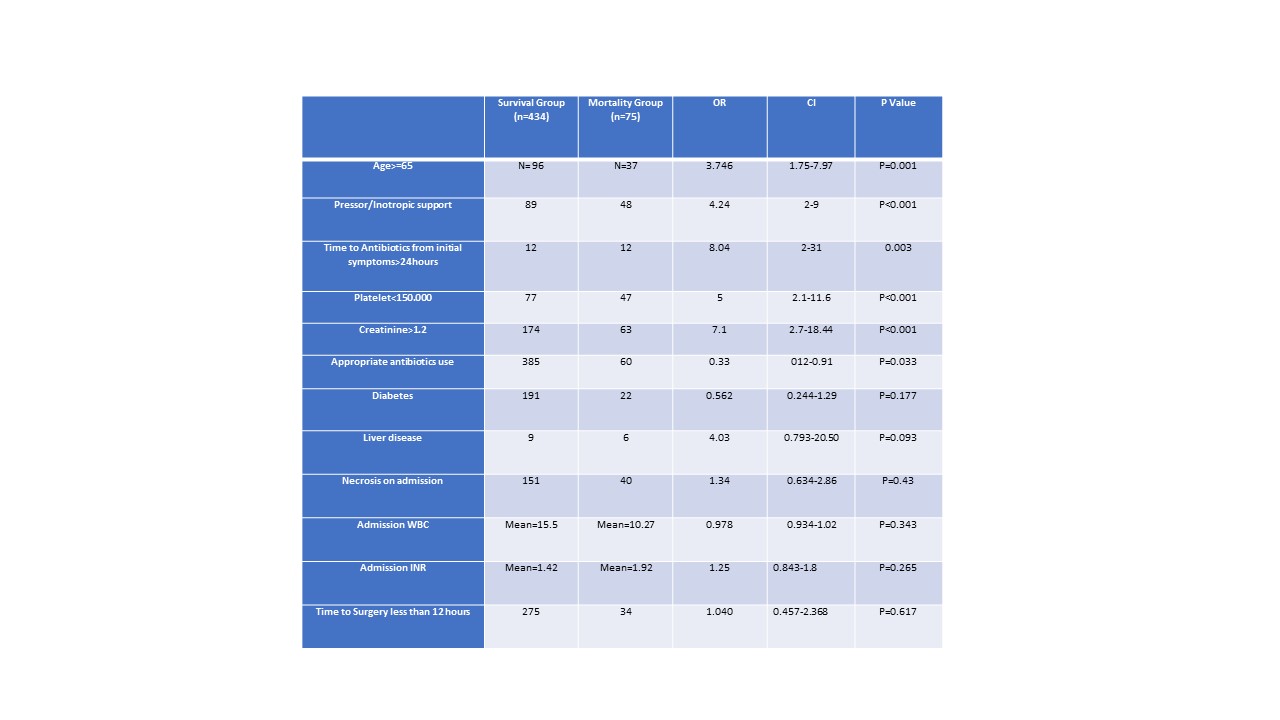Risk Factors of Mortality in Patients With Necrotizing Soft Tissue Infection
*Mahsa Shariat, *Ramsis Ramsis, *Manuel Castillo Angeles, *Mehreen Kisat, *Deepika Nehra, Reza Askari
Brigham and Women's Hospital, Boston, MA
Objective: To Identify risk factors associated with mortality in patients with necrotizing soft tissue infection (NSTI)
Design: Retrospective study of patients with NSTI
Setting: Two urban, tertiary-care, academic hospitals
Patients: All adult patients (≥ 18 years of age) who were treated for necrotizing soft tissue infection between 1995 to 2015 at 2 tertiary care hospitals were included.
Interventions: None
Main Outcome Measures: In-hospital mortality
Results: : Of 509 patients, 75 did not survive to discharge (14.7%). The median age of the patients was 57 (IQR 46.6-67). Majority of the patients were male (57.2%). Independent factors associated with in hospital mortality were age>=65 (Odds ratio [OR], 3.73; 95% Confidence Interval [CI], 1.75-7.9, p=0.001), need for pressor and inotropic support ([OR], 4.24; 95% [CI], 2-9, p<0.001), delay in initiation of antibiotics of >24 hours ( [OR], 8.04; 95% [CI], 2-31.6, p=0.003), admission platelet count less than 150,000 ( [OR], 4.95; 95% [CI], 2.1-11.6, p<0.001) and admission creatinine higher than 1.2 ( [OR], 7.16; 95% [CI], 2.7-18.4, p<0.001). Receiving appropriate antibiotics was significantly associated with decreased mortality. ([OR], 0.33; 95% [CI], 0.12-0.91, p=0.033).
Conclusions: Older age, elevated creatinine, thrombocytopenia, hemodynamic instability, and delay in initiation of antibiotics is associated with mortality in patients with NSTI. 
Back to 2019 Posters




